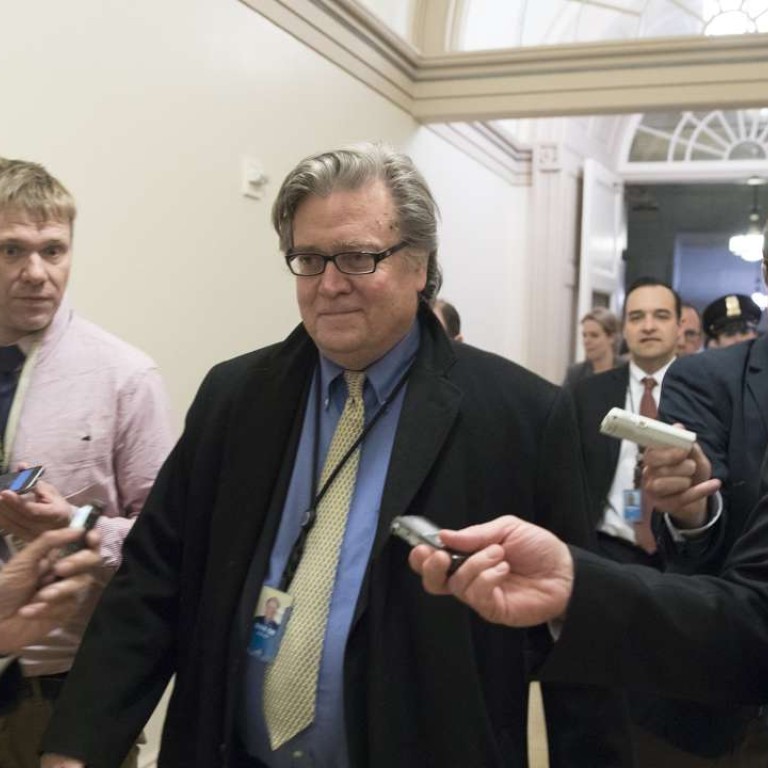
Bannon’s removal from US National Security Council a relief for China ... but only for now
But hawks still hold key positions in trade, which is more of a concern for Beijing
The removal of US President Donald Trump’s chief strategist Steve Bannon, who is known for his tough rhetoric against China, from the National Security Council will provide short-term relief to Beijing, but Sino-US ties still face uncertainty, observers say.
The removal of Bannon on Thursday may reduce hawkish voices towards China, and the decision was announced ahead of the first face-to-face meeting between Trump and President Xi Jinping at the Mar-a-Lago estate in Florida.
Bannon, known for his hawkish remarks, once predicted that the US and China would fight a war within the next 10 years over the South China Sea.
The maritime disputes between China and its Southeast Asian neighbours, as well as North Korea’s nuclear weapons programme, are expected to be on the agenda for talks between the two leaders, although trade issues are expected to take up the bulk of their time.

“Technically, Bannon’s removal from the NSC might be a small positive for US foreign policy, but the effect won’t be too big,” Shi Yinhong, director of the American Studies Centre at Renmin University, said.
“As for China, trade and economic relations with the US are most essential, and figures like [Commerce Secretary Wilbur] Ross, [National Trade Council head Peter] Navarro and [US trade representative nominee Robert} Lighthizer are still there.”
Shi added that there was no evidence to suggest that Bannon was losing his prominence in the Trump administration he will probably focus on domestic issues, which are more important to Trump but also more difficult.
Wu Xinbo, director of the Centre for American Studies at Fudan University, said the removal of Bannon from the NSC would at least reduce the hawkish voices towards China in the key security and foreign policymaking body.
He said the Trump administration was gradually moving towards a more conventional way of operating like previous governments.
But Wu said it was too early to determine whether Sino-US ties would develop on a positive track.
Even if Trump’s son-in-law Jared Kushner, who is believed to have a more pragmatic attitude towards China, played a more important role in Trump’s policy formation, he would not hold much influence in the NSC’s operations.

